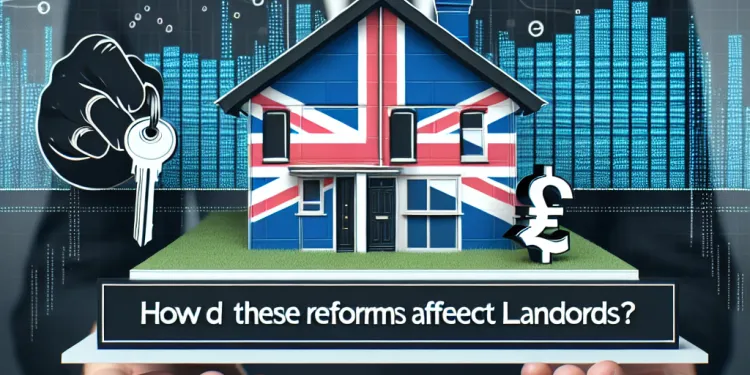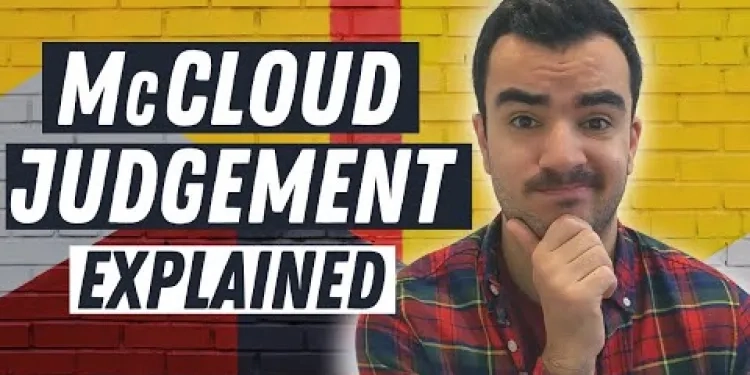
Find Help
More Items From Ergsy search
-

Are there reforms concerning subletting?
Relevance: 100%
-

What are the new Tenancy Law Reforms in the UK in 2025?
Relevance: 41%
-

How do these reforms affect landlords?
Relevance: 37%
-

Does the reform address uninhabitable properties?
Relevance: 36%
-

How does the reform impact renting costs?
Relevance: 34%
-

Chancellor Unveils Plans to Reform UK Tax System
Relevance: 34%
-

Did the US propose reforms to the WHO before deciding to leave?
Relevance: 32%
-

Debate Intensifies Over Welfare Reforms Impacting Disabled Citizens
Relevance: 32%
-

Calls for Reform as Report Highlights Disparities in Sentencing Practices
Relevance: 32%
-

Supreme Court Delivers Key Ruling on Electoral Reform
Relevance: 28%
-

How do the reforms affect housing benefit tenants?
Relevance: 24%
-

Can I end a lease agreement early?
Relevance: 20%
-

What is the key purpose of the UK Tenancy Law Reforms in 2025?
Relevance: 16%
-

A History of The Church of England
Relevance: 14%
-

How Was the Church of England Established
Relevance: 14%
-

Pension Proposals Spark Debate on Retirement Age and Benefits
Relevance: 13%
-

What is the normal pension age for firefighters in the UK?
Relevance: 12%
-

How Did Catholicism Start?
Relevance: 12%
-

The history of the Baptist Church and Anabaptist: The Good The Bad and the Ugly
Relevance: 12%
-

The True History of the Catholic Church That No One Told You
Relevance: 12%
-

John Wesley: Faith That Sparked the Methodist Movement | Full Movie
Relevance: 12%
-

What is the main reason for the proposed cuts to housing benefits?
Relevance: 11%
-

How have child custody laws changed in 2026?
Relevance: 11%
-

What were the reasons given by the US leadership for leaving WHO?
Relevance: 11%
-

Do all jurisdictions have the same requirements for reviewing indefinite sentences?
Relevance: 11%
-

How does council tax relate to wealth in the UK?
Relevance: 11%
-

John Wesley: Faith That Sparked the Methodist Movement | Full Movie
Relevance: 10%
-

History of the Church of England
Relevance: 10%
-

Submitted Addressing Social Inequalities: Initiatives and Challenges in the UK
Relevance: 10%
-

Public Sector Pension Changes | McCloud Judgement | NHS Pensions etc.
Relevance: 10%
-

Government Faces Legal Challenge Over Proposed Immigration Bill
Relevance: 10%
-

What is the historical significance of the Attorney General's role in the UK?
Relevance: 10%
-

What is the impact on pensioners if a pension system collapses?
Relevance: 10%
-

What is the difference between the Attorney General and the Solicitor General in the UK?
Relevance: 10%
-

Employment Tribunal Cases Surge Amidst Gig Economy Debate
Relevance: 9%
-

How can I advocate for an inmate's needs?
Relevance: 8%
-

What updates have been made to enforce child support in 2026?
Relevance: 8%
-

Are gig workers entitled to workers' compensation?
Relevance: 8%
-

Are indefinite prison sentences given in all countries?
Relevance: 8%
-

Are there implications for student loan repayments with 2026 changes?
Relevance: 7%
Introduction to Subletting in the UK
Subletting refers to the practice of a tenant renting out part or all of their rented accommodation to another party, known as the subtenant. In the UK, subletting is subject to various legal conditions and restrictions, often stipulated in the original tenancy agreement. Recent years have seen discussions around reforms to address the complexities and potential issues associated with subletting.
Current Regulations on Subletting
Under UK law, tenants generally require their landlord's permission to sublet. Most tenancy agreements explicitly include clauses that either prohibit subletting entirely or require the landlord's consent. Unauthorized subletting can lead to serious consequences, including eviction. Therefore, it is crucial for tenants to understand their tenancy agreements and seek legal guidance if needed before proceeding with subletting.
Why Reforms are Being Considered
The conversation around reforms regarding subletting has been driven by various factors. One of the main issues is the housing shortage in the UK, particularly in larger cities like London. Subletting, when regulated effectively, can increase housing stock efficiency by ensuring that available spaces are utilized to their fullest capacity. Moreover, unauthorized subletting has led to problems with overcrowding and inadequate living conditions, prompting calls for clearer regulations.
Potential Reforms in Subletting
Proposals for reforming subletting laws include creating more transparent guidelines for both landlords and tenants. Some suggest that standardized contracts could simplify the process, protecting both parties' rights while ensuring compliance with housing regulations. Another potential reform is imposing stricter penalties on unlawful subletting practices to discourage tenants from breaking their tenancy agreements.
Impact of Reforms on Tenants and Landlords
Potential reforms could have varying impacts on tenants and landlords. For tenants, clearer subletting rules and regulations could provide more opportunities and flexibility, allowing them to mitigate rent costs or temporarily relocate without losing their homes. Meanwhile, landlords might experience changes in the enforcement of their property rights, which could either increase or decrease their control over subletting practices, depending on the nature of the reforms.
Conclusion
Reforms in the subletting sector aim to address the challenges currently faced by both tenants and landlords in the UK. By promoting clarity and fairness, reforms can help ensure a balanced approach to housing, maximizing space utilization while maintaining the integrity and quality of living environments. As discussions continue, stakeholders on both sides are advised to stay informed about potential legislative changes and their implications.
What is Subletting in the UK?
Subletting is when you rent out your rented home, or part of it, to someone else. This person is called a subtenant. In the UK, you need to follow certain rules to do this. These rules are often written in your rental agreement. People are talking about changing these rules to make subletting easier and safer.
Rules About Subletting Now
In the UK, you usually need to ask your landlord before you can sublet your home. Many rental agreements say you cannot sublet, or you need your landlord's okay first. If you sublet without permission, you might get in trouble or even be asked to leave. So, it's important to know what your rental agreement says and to ask for help if you're not sure.
Why People Want to Change the Rules
People want to change subletting rules for a few reasons. One big reason is that there aren't enough homes in the UK, especially in big cities like London. If subletting is allowed with the right rules, more people could find places to live. But subletting without rules can lead to crowded and bad living conditions. So, people want clearer rules to fix these problems.
Ideas for New Subletting Rules
Some ideas for new rules include making clear and simple rules for both landlords and tenants. Having standard contracts could help make things easier and fair for everyone. Some people also think there should be tougher penalties for breaking subletting rules to stop people from doing it the wrong way.
How Changes Could Affect Tenants and Landlords
New rules could affect both tenants and landlords in different ways. For tenants, clearer rules might let them share costs or move temporarily without losing their home. For landlords, the changes might give them more or less control over who lives in their properties, depending on the rules.
Final Thoughts
The goal of changing the subletting rules is to help tenants and landlords work together better. With clear and fair rules, everyone can use the space wisely while keeping living places nice and safe. As talks continue, it’s a good idea for both tenants and landlords to keep up with any changes in the law and what they might mean for them.
Frequently Asked Questions
What are subletting reforms?
Subletting reforms are changes in laws or regulations that govern how tenants are allowed to sublet their rented property to a third party.
Why are subletting reforms being introduced?
Reforms are often introduced to address issues such as housing shortages, tenant rights, property management, and to clarify legal responsibilities in rental agreements.
Who is affected by subletting reforms?
Tenants, landlords, and subtenants can all be affected by subletting reforms, as they redefine the rules and responsibilities of each party involved in a rental agreement.
Are subletting reforms different in various regions?
Yes, subletting reforms can vary significantly depending on the country, state, or city, as local laws and housing markets differ.
How do subletting reforms impact tenants?
Reforms may impact tenants by restricting or granting additional rights to sublet, imposing penalties for unauthorized subletting, or requiring landlord approval.
What should landlords know about subletting reforms?
Landlords should be aware of any changes to their rights and obligations regarding subletting, including consent requirements and their ability to vet potential subtenants.
Can subletting reforms lead to higher rents?
In some cases, reforms could affect rental prices if they significantly alter supply and demand dynamics in the housing market.
Is landlord approval required for subletting under new reforms?
This depends on the specific reforms and jurisdiction, but generally, landlord approval may still be required, although procedures may be streamlined.
What penalties exist for illegal subletting after reforms?
Penalties could include fines, eviction, or legal action, but specifics depend on the reform details and local laws.
Do subletting reforms affect lease agreements?
Reforms can affect lease agreements by requiring certain clauses about subletting to be included or revised.
Can subletting reforms improve rental housing availability?
Reforms might improve availability by clarifying subletting rules, thus allowing more flexible use of rental spaces.
How do subletting reforms address overcrowding?
Reforms may set limits on the number of occupants in sublet properties to prevent overcrowding.
Are there reforms that protect subtenants’ rights?
Yes, some reforms aim to provide subtenants with more clear rights, such as tenancy protections and proper notice periods.
Do new reforms require a written sublease agreement?
Many new reforms do require a written sublease agreement to ensure clarity and legal enforceability.
How do reforms affect the duration of subleases?
Reforms may place limits on the maximum duration of subleases to align with the main lease or local housing needs.
Can subletting reforms help prevent rental fraud?
By instituting stricter regulations and verification processes, reforms can help reduce incidents of rental fraud.
What should I do if local subletting reforms affect me?
Consult with legal counsel or housing authorities to understand your rights and obligations under the new reforms.
Are there exemptions to subletting reforms?
Exemptions might be in place for certain types of properties or lease agreements, depending on local laws.
How do subletting reforms address short-term rentals?
Some reforms target short-term rentals by regulating their terms, requiring permits, or setting limitations to differentiate them from long-term sublets.
Where can I find information on upcoming subletting reforms?
Information can typically be found through local housing authorities, government websites, or community housing organizations.
What are changes to subletting rules?
Subletting means renting out a place you already rent to someone else. Changes to subletting rules are new ideas about how this can be done. These changes may make it easier or harder to rent your place to another person.
If you find this tricky to understand, you can ask someone you trust to explain it or use simple tools like a dictionary. Drawing pictures can also help you see how subletting works.
Subletting reforms are changes to rules about renting. They tell people how they can let someone else live in their rented home.
Why are there changes to subletting rules?
Subletting means renting out a place you are renting. New rules are coming to make this fairer and easier for everyone. They help people understand what they can and can't do when they rent a home.
How can we learn more?
- Talk to someone you trust who knows about renting, like a family member or friend.
- Watch simple videos online that explain renting rules.
- Use apps that help with reading and understanding words.
Changes are often made to fix problems like not having enough houses, making sure renters are treated fairly, helping with taking care of buildings, and making sure rental rules are clear.
Who will the subletting changes affect?
Subletting rule changes can change things for everyone who rents. This includes people who rent a place to live, the people who own the place, and people who rent from someone who is renting. These changes tell us what everyone has to do when renting a home.
Do rules about subletting change in different places?
Yes, rules about subletting, which means renting out a place you rent to someone else, can be very different. They change because each country, state, or city has its own rules and housing situations.
How do changes to subletting rules affect people renting?
Subletting rules are about renting your home to someone else. Sometimes, these rules change. It's important to know how these changes can help or affect you if you rent a place.
Here is what you can do to understand better:
- Ask someone you trust to explain the rules to you.
- Look for easy-to-read guides or videos online.
- Use tools like text-to-speech to read information aloud.
These steps can help you feel more sure about renting and any new rules.
Changes in the rules might affect people who rent homes. These changes could give them more rights or take some away. For example, they might need to ask the landlord before letting someone else live there, or they might get in trouble if they do it without asking.
For help, tenants can use tools like picture charts or speak to someone who knows about renting rules, like a housing advisor.
What do landlords need to know about new subletting rules?
Here is some helpful information for landlords:
- Subletting: This means a renter rents their home to someone else.
- New Rules: There are changes about how subletting works.
- Stay Informed: It is important for landlords to know these new rules.
- Ask for Help: Use tools like easy reading guides or talk to a professional for advice.
Landlords need to know the rules about renting out their property to someone else. This is called subletting. They should understand what they are allowed to do and what they need to do. They need to know if they have to agree to the subletting and if they can check who the new person will be.
To make this easier, landlords can use checklists or ask someone like a lawyer for help. They can also use simple guides to learn about their rights and duties.
Can changes to subletting rules make rent go up?
Sometimes, changes in rules can change how much rent costs. This happens if the changes make it easier or harder to find a place to live.
Do you need your landlord's permission to rent your home to someone else now?
This can change in different places, but usually, landlords still need to say yes. It might be easier to get their answer now.
What happens if you rent your home without telling the landlord?
If you rent out your home to someone else without asking the person who owns it, you might get in trouble. There are new rules about this. Here is what could happen:
- You might have to pay a fine.
- You might have to move out of your home.
It’s always a good idea to talk to the landlord before renting your place to someone else.
If you find reading hard, you can:
- Ask someone to read it with you.
- Use a text-to-speech tool that reads words out loud.
- Break the information into small parts to understand it better.
If someone breaks the rules, they might have to pay money, move out of their home, or go to court. What happens will depend on the new rules and local laws.
Do changes in subletting rules change rental agreements?
Changes can change lease papers. They might say you must add or change rules about letting someone else rent your place.
Can Changing Sublet Rules Help More People Find Homes to Rent?
Changes in the rules might help. They can make it clearer for people who rent homes to share or sublet them. This means there could be more places to live.
How do changes in renting rules help with too many people living in one place?
Changes could set rules about how many people can live in rented homes. This will help stop too many people living in one place.
Are there new rules to help people who rent from someone else?
Yes, some changes help people who are renting a room from someone else. These changes give them clear rules, like being protected in their home and having enough time to leave if needed.
Do I need to write an agreement to rent a place to someone else?
If there are new rules, do I need to make a written agreement when I let another person use my space?
Tip: Use pictures or videos to understand this better.
Many new rules need people to have a written sublease agreement. This helps make things clear and legal.
How do changes to rules affect how long you can rent a place from someone else?
Changes might make rules about how long a sublease can be. The sublease might need to be as long as the main lease or match what the area needs for housing.
Can new rules for subletting stop rental scams?
Making rules stronger and checking more carefully can help stop people from cheating when they rent houses.
What can I do if changes to renting rules affect me?
If renting rules change where you live, here are some steps you can take:
- Stay Informed: Look for news or updates about the new rules.
- Ask for Help: Talk to a support worker, friend, or family member who can explain the changes.
- Contact Your Landlord: Speak to your landlord to understand how the new rules affect your home.
- Talk to a Legal Advisor: Find a lawyer or a helpful group to learn how the law protects you.
- Join a Tenant Group: Meet with others who rent homes to support each other and get advice.
Talk to a lawyer or ask for help from people who know about housing. They can tell you what you need to do and what you are allowed to do with the new changes.
Are there any special rules for subletting changes?
Some places have special rules for certain homes or rent agreements. These can be different depending on where you live.
How do changes to subletting rules help with short-term rentals?
Some rules change how short-term rentals work. These changes make it so you might need a special pass or must follow certain rules. They also help us understand the difference between short-term rentals and long-term rentals.
Where can I find news about changes to renting rules?
To find this information, you can: - Check government websites. They often have news about rule changes. - Visit your local library. They have books and people who can help. - Ask someone you trust, like a family member or friend, to help you search online. Tools to help you: - Use simple search words like "renting rule changes" on the internet. - Try using a text-to-speech app to read out loud any information you find. - Look for videos that explain the changes. Videos can be easier to understand.You can usually find information by asking at local housing offices. You can also look on government websites or talk to community housing groups.
Useful Links
This website offers general information and is not a substitute for professional advice.
Always seek guidance from qualified professionals.
If you have any medical concerns or need urgent help, contact a healthcare professional or emergency services immediately.
Some of this content was generated with AI assistance. We’ve done our best to keep it accurate, helpful, and human-friendly.
- Ergsy carfully checks the information in the videos we provide here.
- Videos shown by Youtube after a video has completed, have NOT been reviewed by ERGSY.
- To view, click the arrow in centre of video.
- Most of the videos you find here will have subtitles and/or closed captions available.
- You may need to turn these on, and choose your preferred language.
- Go to the video you'd like to watch.
- If closed captions (CC) are available, settings will be visible on the bottom right of the video player.
- To turn on Captions, click settings .
- To turn off Captions, click settings again.
More Items From Ergsy search
-

Are there reforms concerning subletting?
Relevance: 100%
-

What are the new Tenancy Law Reforms in the UK in 2025?
Relevance: 41%
-

How do these reforms affect landlords?
Relevance: 37%
-

Does the reform address uninhabitable properties?
Relevance: 36%
-

How does the reform impact renting costs?
Relevance: 34%
-

Chancellor Unveils Plans to Reform UK Tax System
Relevance: 34%
-

Did the US propose reforms to the WHO before deciding to leave?
Relevance: 32%
-

Debate Intensifies Over Welfare Reforms Impacting Disabled Citizens
Relevance: 32%
-

Calls for Reform as Report Highlights Disparities in Sentencing Practices
Relevance: 32%
-

Supreme Court Delivers Key Ruling on Electoral Reform
Relevance: 28%
-

How do the reforms affect housing benefit tenants?
Relevance: 24%
-

Can I end a lease agreement early?
Relevance: 20%
-

What is the key purpose of the UK Tenancy Law Reforms in 2025?
Relevance: 16%
-

A History of The Church of England
Relevance: 14%
-

How Was the Church of England Established
Relevance: 14%
-

Pension Proposals Spark Debate on Retirement Age and Benefits
Relevance: 13%
-

What is the normal pension age for firefighters in the UK?
Relevance: 12%
-

How Did Catholicism Start?
Relevance: 12%
-

The history of the Baptist Church and Anabaptist: The Good The Bad and the Ugly
Relevance: 12%
-

The True History of the Catholic Church That No One Told You
Relevance: 12%
-

John Wesley: Faith That Sparked the Methodist Movement | Full Movie
Relevance: 12%
-

What is the main reason for the proposed cuts to housing benefits?
Relevance: 11%
-

How have child custody laws changed in 2026?
Relevance: 11%
-

What were the reasons given by the US leadership for leaving WHO?
Relevance: 11%
-

Do all jurisdictions have the same requirements for reviewing indefinite sentences?
Relevance: 11%
-

How does council tax relate to wealth in the UK?
Relevance: 11%
-

John Wesley: Faith That Sparked the Methodist Movement | Full Movie
Relevance: 10%
-

History of the Church of England
Relevance: 10%
-

Submitted Addressing Social Inequalities: Initiatives and Challenges in the UK
Relevance: 10%
-

Public Sector Pension Changes | McCloud Judgement | NHS Pensions etc.
Relevance: 10%
-

Government Faces Legal Challenge Over Proposed Immigration Bill
Relevance: 10%
-

What is the historical significance of the Attorney General's role in the UK?
Relevance: 10%
-

What is the impact on pensioners if a pension system collapses?
Relevance: 10%
-

What is the difference between the Attorney General and the Solicitor General in the UK?
Relevance: 10%
-

Employment Tribunal Cases Surge Amidst Gig Economy Debate
Relevance: 9%
-

How can I advocate for an inmate's needs?
Relevance: 8%
-

What updates have been made to enforce child support in 2026?
Relevance: 8%
-

Are gig workers entitled to workers' compensation?
Relevance: 8%
-

Are indefinite prison sentences given in all countries?
Relevance: 8%
-

Are there implications for student loan repayments with 2026 changes?
Relevance: 7%


